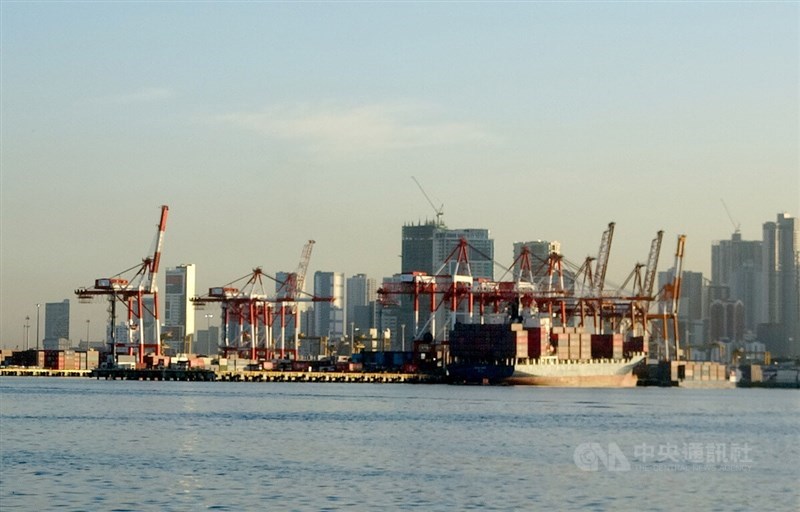
Manila, Aug. 3 (CNA) The United States' decision to levy a 19 percent tax on imports from the Philippines has prompted concerns that this could discourage Taiwanese businesses from relocating their factories to the Southeast Asian country.
Meanwhile, export-oriented Taiwanese firms primarily targeting the U.S. market are beginning to cut labor costs and shift their focus to the Philippine domestic market, according to Taiwanese business leaders based in the country.
U.S. President Donald J. Trump announced a 19 percent tariff rate for goods from the Philippines after a meeting with President Ferdinand R. Marcos, Jr. in Washington on July 22, while Manila has agreed to remove all its tariffs on American goods.
The new tariff rate is just below the 20 percent threatened by Trump earlier in July, but still above the 17 percent rate announced in April.
The Philippines, a key U.S. security ally in Southeast Asia, was expected to secure a more favorable tariff rate than other countries. However, Indonesia, Thailand, and Malaysia face the same 19 percent rate, while Vietnam faces 20 percent.
Both Taiwanese businesses operating in the Philippines and local Filipinos see the 19 percent tariff rate as "a rise rather than a reduction."
Lin Teng-feng (林登峰), president of the Taiwan Association Inc. Philippines (TAP), an organization that assists Taiwanese business owners in the Philippines, told CNA that an estimated 10,000 to 20,000 Taiwanese businesspeople are currently operating in the Philippines.
Most TAP members have already established themselves locally and cater to the Philippine domestic market, with only about 10 percent engaged in exports. As a result, the 19 percent tariff has little impact on most TAP members, Lin noted.
Lin said he believes that the new tariff regime primarily affects the willingness of foreign-based Taiwanese companies to relocate production to the Philippines.
If the tariff rate had stayed at the initial 17 percent, Taiwanese firms in other countries might have considered shifting operations to the Philippines, Lin explained.
However, with tariffs rising instead of falling and the rate now roughly the same as other Southeast Asian countries, "Those who had considered moving to the Philippines may put their plans on hold," he said.
For most Taiwan-based businesses in the Philippines, Lin said that fluctuations in the Philippine peso exchange rate and inflation pose greater challenges than Trump's tariff policy as their raw materials are mainly sourced from Taiwan.
Lin also warned of the potential risk from Chinese dumping. If Chinese manufacturers, facing difficulties associated with exporting to the U.S., turn to dumping products in the Philippines, it could disrupt the local market. Whether that risk can be averted depends on how strictly Philippine customs enforces trade rules, he added.
The situation facing Taiwanese companies in the Subic Bay Freeport Zone differs from that of those in Metro Manila and surrounding provinces.
Chang Che-chia (張哲嘉), chair of the Taiwan Chamber of Commerce in Subic Bay, told CNA that Subic Bay is the home of about 100 Taiwanese businesses, roughly 80 percent of which are export-oriented and mainly target the U.S. market.
He observed a noticeable drop in orders from U.S. buyers over the past few months. Although the new tariff rate is now clear, the rate on the Philippines is not much different from that facing other Southeast Asian nations, so order volumes are unlikely to change significantly in the near future.
To cope with reduced orders, some Taiwanese factories in the Philippines are cutting employees' workdays per week to lower expenses. Others, originally focused on exports, are now shifting to the domestic market of 116 million people, according to Chang.
Chang noted that while the current tariff rates are unlikely to attract more foreign Taiwanese companies, the Philippines still has significant investment potential if it improves administrative efficiency and strengthens its supply chain.
"If the setup process for factories could be sped up, and there are dedicated staff to explain complex tax incentives, more companies would be willing to come," he said.
- Business
U.S. dollar down in Taipei trading
01/27/2026 10:24 AM - Society
Taiwan headline news
01/27/2026 09:59 AM - Business
Taiwan shares open higher
01/27/2026 09:09 AM - Society
11 KMT members indicted in Chiayi City for recall petition forgery
01/26/2026 10:37 PM - Society
Taiwan court rejects damages claim over Lebanon pager blasts
01/26/2026 10:28 PM